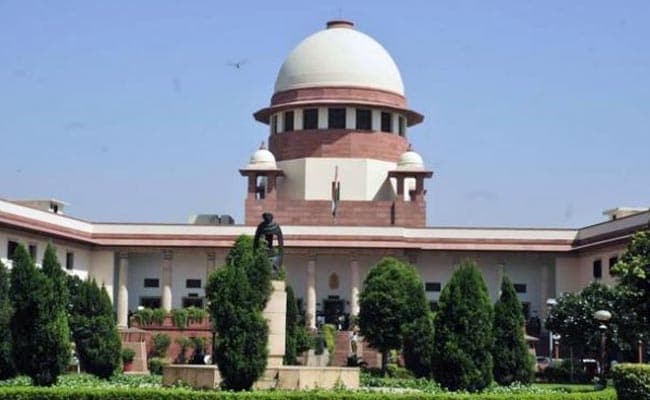
The Supreme Court had asked the Centre for status update on 1,581 cases against lawmakers.
New Delhi:
A dozen special courts will be set up to fast track cases against lawmakers across the country and Rs 7.8 crore has been allocated for it, the government told the Supreme Court today. With more than 1,500 cases pending against lawmakers across the country till 2014, the court had asked the Centre to chalk-out a plan for exclusive fast-track courts and ear-mark funds for speedy disposal of the cases.
The top court is hearing a petition from Ashwini Kumar Upadhyay, a lawyer and a member of the BJP, who has also argued against the present system of barring a convicted lawmaker from contesting elections for six years. The petitioner said a lifetime-ban is required - a suggestion the top court had agreed with during the last hearing on November 1.
If the court decides on a life-time ban, it could end the electoral career of politicians like Lalu Yadav, the former Chief Minister of Bihar convicted in fodder scam, and stop VK Sasikala - currently in jail in a corruption case - from beginning one.
The Centre and the Election Commission have been at odds over the duration of the ban. The Centre has taken the stance that the current six years is enough. The Election Commission has supported a lifetime ban after an initial ambivalent stand, that had received a sharp response from the court. "If you don't want to be independent, constrained by the legislature, say so," the bench had remarked.
During the last hearing, the top court had also asked the Centre for an update on the status of the 1,581 cases filed against lawmakers of the states and Centre since 2014. The judges had asked how many of the cases had been disposed of within a year and how many had ended in conviction or acquittal.
In its affidavit, the Centre said it needed more time to collect data on this.
The top court is hearing a petition from Ashwini Kumar Upadhyay, a lawyer and a member of the BJP, who has also argued against the present system of barring a convicted lawmaker from contesting elections for six years. The petitioner said a lifetime-ban is required - a suggestion the top court had agreed with during the last hearing on November 1.
If the court decides on a life-time ban, it could end the electoral career of politicians like Lalu Yadav, the former Chief Minister of Bihar convicted in fodder scam, and stop VK Sasikala - currently in jail in a corruption case - from beginning one.
The Centre and the Election Commission have been at odds over the duration of the ban. The Centre has taken the stance that the current six years is enough. The Election Commission has supported a lifetime ban after an initial ambivalent stand, that had received a sharp response from the court. "If you don't want to be independent, constrained by the legislature, say so," the bench had remarked.
During the last hearing, the top court had also asked the Centre for an update on the status of the 1,581 cases filed against lawmakers of the states and Centre since 2014. The judges had asked how many of the cases had been disposed of within a year and how many had ended in conviction or acquittal.
In its affidavit, the Centre said it needed more time to collect data on this.
Track Latest News Live on NDTV.com and get news updates from India and around the world

